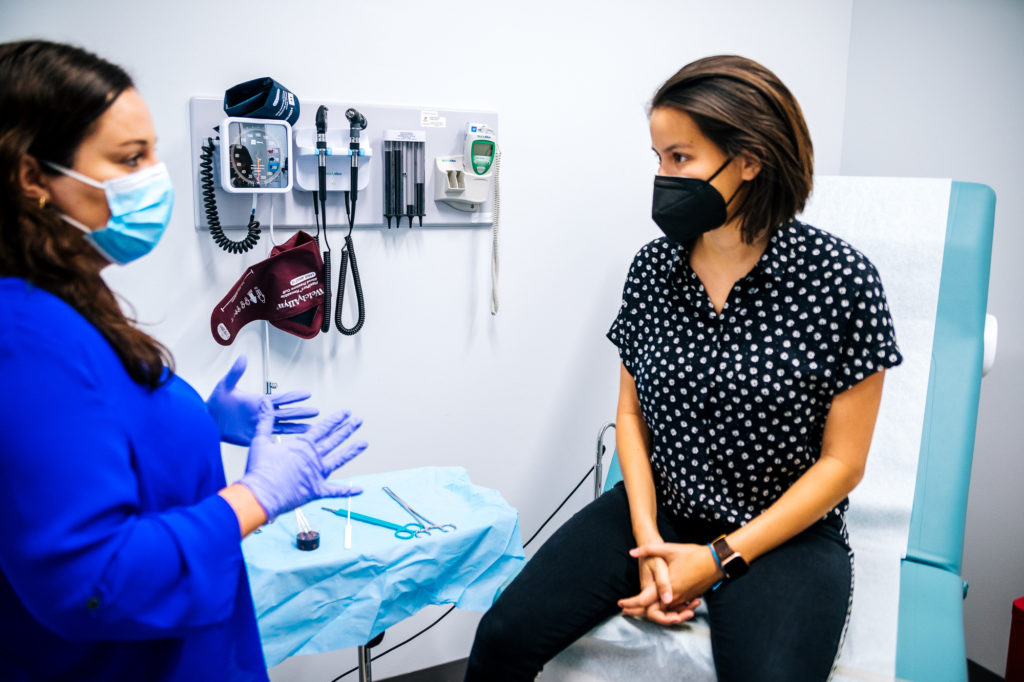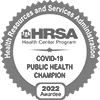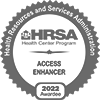Cervical Cancer Awareness Month is a crucial time to highlight the importance of prevention, screening, and education in the fight against cervical cancer. Metro Inclusive Health, committed to promoting health and wellness in diverse communities, emphasizes the following key points:
1. Importance of HPV Vaccination: The Human Papillomavirus (HPV) vaccine is a vital tool in preventing cervical cancer. It’s recommended for preteens, but adults up to age 26 can also receive it. Vaccination significantly reduces the risk of developing HPV-related cervical cancer.
2. Regular Screening is Crucial: Regular Pap tests (or Pap smears) and HPV testing are essential for early detection. Women should start getting Pap tests at age 21 and follow the recommended schedule based on age and health history.
3. Educating on Risk Factors and Symptoms: Awareness about risk factors such as multiple sexual partners, smoking, a weakened immune system, and prolonged use of birth control pills is vital. Recognizing early symptoms like abnormal vaginal bleeding, pain during intercourse, and pelvic pain can lead to earlier diagnosis and treatment.
4. Promoting Healthy Lifestyle Choices: Encouraging a healthy lifestyle, including maintaining a healthy weight, practicing safe sex, and quitting smoking, can help reduce the risk of cervical cancer.
As your experts in inclusive health, METRO is covering the basics: what cervical cancer screening is, who should get screened, how it’s done, and why it’s important.
How Nutrition Plays a Role in Cervical Health
Nutrition is an often-overlooked factor in cervical cancer prevention. A diet rich in fruits, vegetables, and essential vitamins like folate, vitamins A, C, and E, and antioxidants can help strengthen the immune system and support cellular health. These nutrients may help the body naturally clear HPV infections and reduce inflammation. At Metro Inclusive Health, we encourage overall wellness—including access to preventive screenings and guidance on healthy living—because prevention is about more than one step; it’s about the full picture of care.
What is cervical cancer screening?
Cervical cancer screening is a way to check for changes in the cells of the cervix that could potentially lead to cancer. There are three types of screening tests available: the HPV test, the Pap test, and the HPV/Pap co-test.
- The HPV test looks for the presence of human papillomavirus (HPV), which is a sexually transmitted virus that can cause abnormal changes in the cells of the cervix.
- The Pap test, also known as a Pap smear, involves collecting a sample of cells from the cervix and sending them to a laboratory for examination. “Pap tests have lower sensitivity compared with HPV tests, so they may miss some precancers and have to be repeated frequently. They also detect a range of abnormal cell changes, including some minor changes that are completely unrelated to HPV. So, many people who get an abnormal Pap test result actually have a very low chance of developing cervical cancer.” – ACS
- HPV/Pap co-testing is only slightly more sensitive than HPV testing, but it is less efficient because it requires two tests. And it detects a lot of minor changes that have a very low risk of turning into cancer. For an entire population, that’s a lot of additional effort and cost.
Why is it important?
According to the Centers for Disease Control (CDC), “about 13,000 new cases of cervical cancer are diagnosed and about 4,000 [people] die of this cancer [per year in the U.S.] Hispanic women have the highest rates of developing cervical cancer, and Black women have the highest rates of dying from cervical cancer.” In Florida in 2020, 1,008 cases of cervical cancer were reported in the state of Florida (see cervical cancer statistics in the U.S.).
Cervical cancer is one of the most preventable types of cancer, and regular screening is an important part of preventing or detecting it early. When cervical cancer is found early, it is usually easier to treat and the chances of a full recovery are much higher.
In addition to detecting cervical cancer early, cervical cancer screening can also find precancerous changes in the cervix, which can be treated before they turn into cancer. This is why it’s so important to get screened regularly, even if you’re not experiencing any symptoms.
Who should get screened for cervical cancer?
The CDC recommends people with cervixes to start getting screened at age 21. If your result is normal, your doctor will recommend when to get your next test. For most, it is recommended to get tested every 3 years after age 21.
At the discretion of your health care provider, you may not need to continue screenings if you:
- Are older than 65
- Have had a hysterectomy (surgery to remove the uterus, including the cervix) and have no history of cervical cancer or precancer
Of course, it’s important to note that individual screening needs may vary based on a person’s medical history and other risk factors for cervical cancer. Risk factors for cervical cancer include HPV infection, smoking, a weak immune system, and having HIV or another sexually transmitted infection. It’s important to talk to your healthcare provider about your individual screening needs.
How is the Pap or HPV test done?
During cervical cancer screenings, your healthcare provider will use a speculum (a device used to hold open the vagina) to access the cervix and collect a sample of cells using a small brush or spatula. The whole process usually takes just a few minutes and may cause some mild discomfort, but your provider will be there to walk you through the process and answer questions along the way.
After your appointment, the sample is sent to a laboratory to be evaluated for signs of HPV, precancerous or abnormal cells. Your provider will follow up to discuss these results, and determine your next screening.

How much do screenings typically cost?
Cervical cancer screening is part of your overall primary care treatment. Preventative services like this one are widely covered by insurance, and our insurance verification team can help you determine costs based on your individual plan.
At Metro Inclusive Health, we accept most insurances and Medicare, and we offer a sliding scale fee program for those who are under- or uninsured.

Cervical cancer screening is an important part of preventing or detecting this type of cancer early. It’s important for individuals to talk to their healthcare provider about their individual screening needs, as recommendations for when and how often to get screened can vary based on factors such as age and medical history. By getting screened regularly, you can help protect yourself against cervical cancer and increase your chances of a full recovery if it is detected early.








